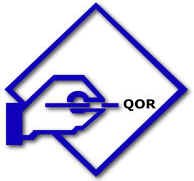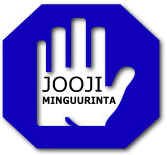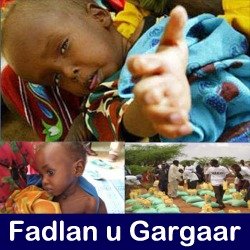Arguably, the strongest form of support in humanity is compassion. Some say we have lost our humanity; I say we have lost our sense of kindness. We live in a time where complete disconnect is better than avid activism. We live in a time where education is taken for granted, and parents are villains for wanting better for their children. And we live in a time where generosity is synonymous with charity—it comes at too great of a cost to be seen that often.
A recent article written by Mohamed Dalmar: xusuustay Xaaji Axmad Juuni, expressing the way in which the helping hand of one man helped shape his successful future, inspired me to write an article in English describing the nature and work of the generous Haji Ahmed Juuni. I greatly feel that Dalmar’s story and Juuni’s kindness is an example of what we can accomplish when we support and work together.
 Haji Ahmed Juuni’s story needs to be told. Recapturing his inspiration allows us to envision a nation moving on from trauma, and how one man’s mission was enough to father a generation of scholars and business men. It is a testament to the openhandedness of our everyday heroes, and to a lifetime spent inspiring others to work towards following their dreams and paying it forward. He would have no idea how much of an impact he had in hundreds of lives.
Haji Ahmed Juuni’s story needs to be told. Recapturing his inspiration allows us to envision a nation moving on from trauma, and how one man’s mission was enough to father a generation of scholars and business men. It is a testament to the openhandedness of our everyday heroes, and to a lifetime spent inspiring others to work towards following their dreams and paying it forward. He would have no idea how much of an impact he had in hundreds of lives.
Juuni owned a restaurant in Mogadishu, Somalia near Banadir Cinema. Day after day he cooked food for young men with empty pockets who would grow up eating breakfast, lunch, and dinner at the restaurant. These young men would travel all the way from all Somalia, particularly from Northeast Somalia eager to continue going to school. There was no middle school or high school in the Northeast Somali region, so they had to make the journey to Mogadishu after primary school in order to continue their education. Ahmed Juuni welcomed them with open arms.
His restaurant was pivotal in raising young students who travelled to the city to learn in the 50s and 60s. This is not to say a few hungry individuals were given free meals; he helped hundreds of Somali young men who came without the funds needed to expand their education as Dalmar tells us.
He did so by creating an opportunity for young students to eat at his restaurant on a tab that they would pay upon completing their studies, once they found suitable work. This was the essentially one of the first community scholarships in Somalia.
As we know, in countries such as Canada, students are given the incentive of scholarships to continue education. However, this sum of money would come with interest to pay back. Haji Ahmed Juuni’s generosity came with no hidden cost, no interest, and no collection agency. It came with a positive role model with a vision for Somalia’s future success.
Coming from North Eastern Somalia—now called the Puntland region—amid those young students was Mohamed Dalmar who travelled from Garowe to the Mogadishu, where he was later joined by his brother, now Dr. Ahmed Dalmar who resides in the United States.
“When I came to Hamar (Mogadishu) I joined the lucky recipients of Haji Ahmed Juuni’s help eating at his restaurant,” said Mohamed Dalmar. “My nephew Fiqi Bashir Abdulle, who also used to eat at the restaurant, took me there and Haji Ahmed Juuni welcomed me with open arms. He told me to eat, write my name in a book documenting the visitors, and be on my way.”
Mohamed Dalmar would later become the director general of the National Bank of Somalia and a professor at the University of Somalia teaching in the Economics faculty. He recently retired here in Canada as the director of Ottawa’s Catholic Immigration Centre. During his time at the bank, Mohamed Dalmar began paying back his loan from Ahmed Juuni.
When Dalmar began working at the bank, Haji Juuni would visit him. Juuni had no idea where the money transferred to his accounts was coming from. Along with Mohamed Dalmar, many young men, now grown professions, began depositing money into Ahmed Juuni’s accounts to repay the open tabs from years ago.
Hundreds of individuals much like Dalmar would grow up repaying Haji Ahmed Juuni for those meals at his restaurant. Juuni also gave money for haircuts and helped prepare individuals for big interviews. His generosity and compassion were not forgotten by those whose lives he helped change for the better.
“I was eating at Juuni Restaurant for four years before I found work at the National Bank. In those four years I have never seen Haji Ahmed Juuni yelling at anyone, looking down at any of his visitors, or speaking negatively to his workers. He treated everyone with kindness, and a culture of dignified respect.”
It didn’t matter how long it took for the money to come in but it did. We can all learn from the compassion this great man showed to complete strangers and help inspire the next generation to help each other make something of themselves.
“Education is the most powerful weapon which you can use to change the world.”
–Nelson Mandela.
By: Safia Abdulaziz Hashi- University of Ottawa Journalism Student
Tixraac Qoraalkii Xusuustay Xaaji Axmad Juuni (AUN)
oo uu qoray Mohamed Dalmar
oo lagala xiriiri karo emailka: mdalmar@sympatico.ca






































comment closed after 30 days / Jawaabaha waa la xiray ama waa la joojiyay wixii ka badan 30 cisho.